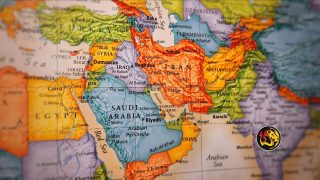
By Stefan J. Bos, Chief International Correspondent Worthy News
BEIRUT/TEHRAN/JERUSALEM (Worthy News) – Lebanese interim Prime Minister Najib Mikati has accused Iran of interfering in his nation’s internal affairs after the Iranian parliament speaker suggested that Tehran seeks a deal about Hezbollah’s withdrawal from southern Lebanon.
As Israel prepared to strike Iran for supporting groups like Hezbollah and attacking the Jewish nation, Tehran tried to limit the damage by proposing talks with France on fulfilling United Nations Security Council Resolution 1701.
The 2006 resolution called for Iran-backed Hezbollah to withdraw from southern Lebanon, where only the Lebanese army and U.N. peacekeepers could be deployed.
“We were surprised by the comments from Iranian parliament speaker Mohammad Bagher Ghalibaf, who said that Tehran is prepared to negotiate with France on the implementation of Security Council Resolution 1701,” Mikati said.
“This position is an outrageous interference in Lebanon’s affairs and an unacceptable attempt to impose unwarranted guardianship over Lebanon,” he added in published remarks.
He said Tehran’s envoy should be summoned over the reported comments by Bagher.
LEBANON DIPLOMACY
Criticism of Iran by top Lebanese officials is unusual as Tehran sponsors the powerful Lebanon-based Hezbollah, which fights Israeli troops along Lebanon’s southern border.
In comments monitored by Worthy News on Sunday, Mikati stressed that diplomacy is the only path forward, adding that Lebanon should play a full role in that process.
He stressed the need for full implementation of U.N. Security Council Resolution 1701 to end the Israel-Hezbollah conflict.
“There is no solution except through diplomacy. It is still on the table,” Mikati told broadcaster Al Arabiya, underscoring the importance of dialogue in preventing further escalation.
Mikati also reaffirmed “Lebanon’s commitment” to Resolution 1701, which was adopted in 2006 to end hostilities between Israel and Hezbollah.
“Resolution 1701 gives us long-term stability, and we are fully committed to it,” adding that it is a critical tool for maintaining peace in Lebanon’s southern region.
TAIF AGREEMENT
He said the resolution aligned with the 1989 Taif Agreement on Lebanon’s stability, negotiated in Taif, Saudi Arabia.
That accord ended the 15-year-longLebanese Civil War and granted government control over southern Lebanon, then run by the ‘Christian’-South Lebanon Army cooperating with Israel.
“The Taif Agreement stipulates the extension of the state’s sovereignty over all Lebanese territories. It is our cornerstone for stability in southern Lebanon to bring an end to this war,” Mikati explained.
The caretaker prime minister explained that the essence of Resolution 1701 could empower the Lebanese military to take control of conflict areas south of the Litani River.
“We must deploy the Lebanese army to the south of the Litani River,” Mikati said, adding that the government is committed to sending between 10,000 to 12,000 soldiers to the area.
Yet it was unclear when and if the resolution could be implemented as smoke billowed over the front lines after Israel’s recently launched ground offensive in Lebanon against Hezbollah.
Copyright 1999-2026 Worthy News. This article was originally published on Worthy News and was reproduced with permission.
Latest News from Worthy News
Israeli President Isaac Herzog has met victims’ families and survivors of Australia’s worst-ever terrorist and antisemitic attack that killed more than a dozen people, amid mounting tensions between the two nations.
Efforts to dismantle Hamas’ military infrastructure in Gaza are moving forward according to plan, despite tensions surrounding the ceasefire, a senior official involved in U.S. President Donald Trump’s Board of Peace initiative told Ynet in an exclusive report Wednesday.
As diplomatic talks continue between Washington and Tehran, new reports from inside Iran describe intensifying repression and widespread fear among ordinary citizens.
U.S. President Donald Trump met privately with Israeli Prime Minister Benjamin Netanyahu at the White House for nearly three hours Wednesday, with both leaders confirming that negotiations with Iran remain ongoing but no final agreement has been reached.
The Pentagon has instructed a second aircraft carrier strike group to prepare for potential deployment to the Middle East as the United States increases military readiness in response to rising tensions with Iran, according to The Wall Street Journal.
Authorities in the U.S. state of Arizona detained a suspect Tuesday in connection with the reported abduction of Nancy Guthrie, the 84-year-old mother of American television host Savannah Guthrie, as the high-profile investigation entered its ninth day.
Nine people were killed Tuesday in a mass shooting in the western Canadian province of British Columbia, and at least 27 others were injured, authorities confirmed late Tuesday, marking one of the deadliest attacks in Canada in recent years.







